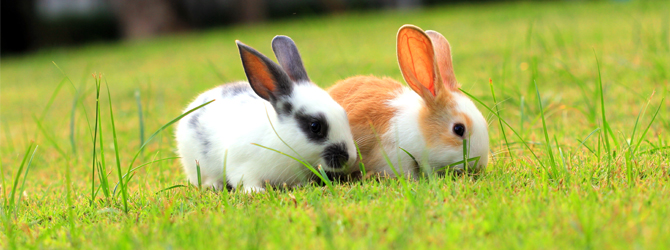Snuffles in Rabbits: Help! My rabbit has snuffles
First Published: 04/10/2018
Last Updated: 25/01/2024
Rabbit snuffles – it almost sounds cute, doesn’t it? But much as it sounds like the common cold to us humans – a harmless condition that clears up in time – rabbit snuffles is a serious bacterial infection that should be treated by your vet, fast.
What is rabbit snuffles?
Snuffles in rabbits can be caused by various types of bacteria, including pasteurella multocida – the most common cause – pseudomonas, and bordetella (which the dog owners among you will know better as kennel cough).
What are the symptoms of snuffles in rabbits?
Snuffles is fairly easy to identify in rabbits, as the symptoms are much the same as when we get a cold. They include:
- Watery eyes
- Blocked ears, that can lead to balance problems
- Runnny nose
- Difficulty breathing
- Loss of appetite
- Wheezing
- Coughing
- Sneezing
I think my rabbit has snuffles – what should I do?
Snuffles in rabbits is very serious – if your rabbit is displaying any of the symptoms listed above, book an appointment with your local vet right away. If your rabbit starts breathing through its mouth, get him to a vet without delay, as he could be at risk of serious respiratory failure.
In the meantime, keep everything scrupulously clean, and keep your poorly rabbit warm.
“Rabbit snuffles is a serious bacterial infection that needs to be treated by your vet, fast.”
How do vets get rid of snuffles in rabbits?
Though rabbit snuffles is a serious condition, it’s relatively straightforward to treat and should clear up fairly quickly. Your vet will prescribe antibiotics, and may also recommend a nebuliser that lets your sick rabbit inhale the medication into the lungs, where it’s needed.
Can other pets catch snuffles from my rabbit?
Yes – snuffles is contagious, so other rabbits that come into direct contact with the infected rabbit are at risk of catching it. You can reduce the risk of infection by keeping feeding bowls and water bottles clean, and preferably using separate containers to feed the ill rabbit.
Though the risk of other animals contracting the condition is low, you should always wash your hands thoroughly after handling your ill rabbit to minimise the chances of infection.
Need expert advice on snuffles in rabbits?
For more information on snuffles in rabbits, get in touch with your local vet.
Find your nearest vet using our Find a Vet page, or speak to a vet online using Online Vets.
